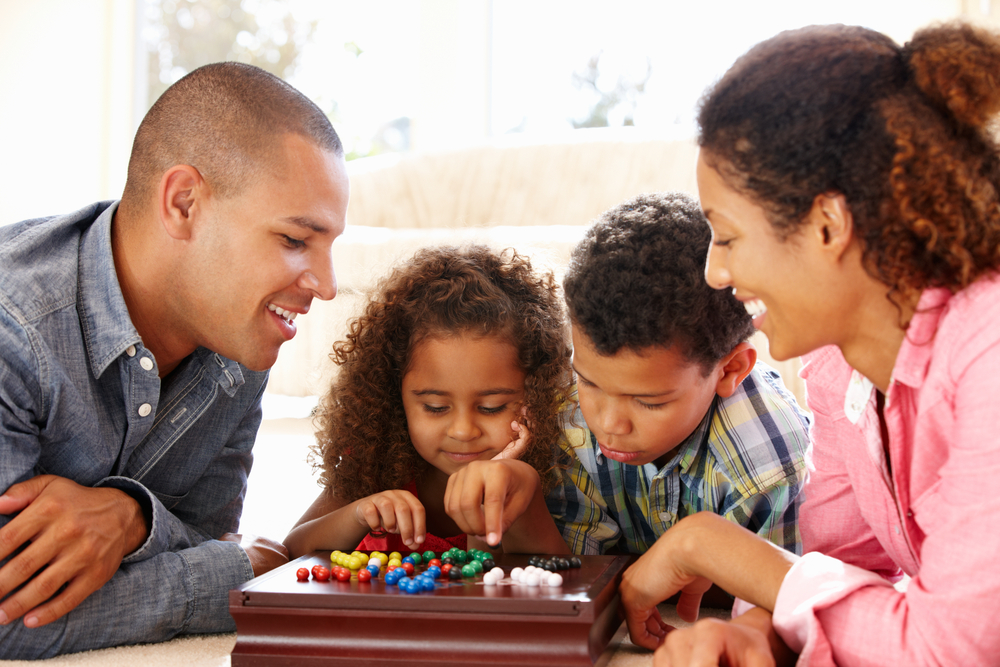How Much Screen Time is Too Much?
In recent years, many parents have chosen to relax their screen time rules. But it leaves us with a big question:
How much screen time is too much?
Too much technology is certainly a modern life concern. And it’s complicated. Our devices can be incredibly helpful — keeping us connected to family or giving us the ability to work from home.
But when it comes to kids, the question gets murkier. Is this screen time helping them learn or rotting their brains? How do you know when your child has had too much screen time?
How to start the screen time conversation with your child
If you’re worried about your child’s screen time habits, talk to them about it. But don’t just barge in and start making demands. Start a conversation. Technology is not going away anytime soon, so your child needs to learn how to use it wisely. And this includes practicing some form of self-regulation.
In order to find a screen time solution that works for your family, you need to clearly know what it is about screen time that concerns you. As a psychologist, when I talk to parents about screen time, I ask them two questions:
- Do you think your child is addicted to technology?
- What concerns you about your child’s screen time use?
Let’s break those down a bit more.

Do you think your child is addicted to technology?
The same things that make some adults prone to more common addictions can also create more addictive behavior in some kids. Interestingly, screen time addiction has very little to do with a specific number of hours spent on screens.
Some kids can show signs of addiction within minutes of playing. Whereas others could spend countless hours without any concerning signs. For parents concerned about addiction, ask yourself these questions:
- What happens when you turn it off?
- Does their behavior change before and after screen time?
- Does your child talk incessantly about their video games or shows and can’t put the topic aside?
Your answers will likely fall on a sliding scale. For example, are they simply passionate about a certain game, or does it border on obsession? Do they act upset for only a few minutes after turning off their device, or does it last for hours?
If your child’s screen time behavior is concerning, talk with their doctor. Some treatments are available (for example, types of behavioral therapy). And if needed, they can direct you to more resources.
What concerns you about your child’s screen time use?
Before you have any conversations with your child, you should ask yourself this question: What is the most upsetting thing about your child’s screen time use?
- Are you worried about your child losing interest in other activities?
- Are you concerned about your child’s obsession with video games and computers?
- Do you fear they will not have enough physical activity or more diverse interests like reading or other hobbies?
- Are you worried about how screen time affects your child’s brain or eyesight?
Then reflect on your answers. Where do these concerns come from? What crosses the line from passionate interest into obsession?
Answering these questions gives you a great way to start the screen time conversation with your child. Share your concerns and give them a chance to share theirs. Then find a solution together.
What if screen time is out of control?
If you feel your child’s screen time has gotten out of control, think about balance. Just as you balance your diet, your family may benefit from a more defined screen time experience.
And just as different families have varying views on how to balance their diet, screen time balance is subjective as well. Do you want technology in your family to be a main course, a snack, or a treat?
Think of what your child is missing — what are the “veggies” in your house?
- Reading?
- Physical activity?
- Music?
Ensure that your child completes those activities first. You may find that screen time feels better if it isn’t taking away from your child’s other daily “nutrients.”

Troubleshooting screen time challenges
If you’re experiencing a surprising amount of struggle or behavioral challenges when trying to make screen time changes, take a step back and evaluate.
If you are reining in your child’s screen time, make sure it’s a collaborative effort. Talk through the process and set boundaries together. Then remind them of the plan when they balk.
If your conversations are going nowhere, or your child is experiencing severe meltdowns (even when they know what’s coming), your child may be addicted to their screens.
In this case, stay consistent and try to keep the conversations going. But if the struggles don’t ease over time, a psychologist or therapist may be able to help.
And always remember — you have likely experienced these challenges yourself. For example, you’ve caught yourself picking up your phone to check notifications (even though you just did that 5 minutes before). Or you’ve sat for an hour playing Candy Crush when you had plans to clean the house.
Many apps and games are designed to be addictive. There is no shame in breaking that bond! Tackling those struggles together as a family is a great way to bring real change to your and your child’s day.
Looking for screen time help?
Despite how scary addiction sounds, remember that with moderation and balance, screen time can have positive impacts at home, school, and beyond.
Most families are not looking to ban devices or technology altogether. Instead, families are looking for better screen time solutions. Screen time that brings real value to a child’s day.
If this sounds like you, try Kinjo!
Kinjo helps kids find learning and skill-building opportunities in one of their favorite online spaces — Roblox. With a little help from the Kinjo reward system, kids are motivated to choose quality experiences over others with less learning value.
It’s fun for them, and peace of mind for you. Want to learn more? Explore Kinjo Today!
About the Writer

Dr. Claudia Ma
Licensed Psychologist & Founder, Modern Life Psychology
LinkedIn






